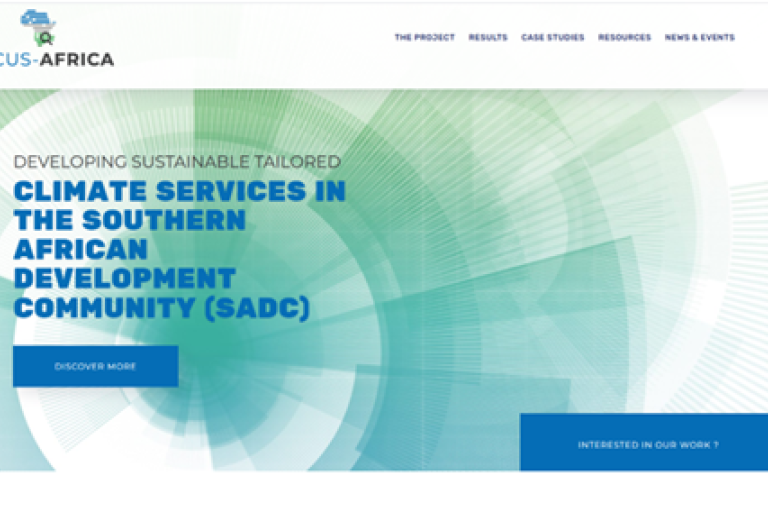FOCUS-Africa: Empowering Southern Africa at the Frontline of Climate Action and Resilience

The Full-value chain Optimized Climate User-centric Services for Southern Africa (FOCUS-Africa) project, launched in September 2020 to tackle climate change vulnerability challenges in the Southern African Development Community (SADC) region, came to end in November 2024 after 51 months. Over the entire project, WMO worked with a consortium of 16 partners from Africa and Europe to develop sustainable, user-focused climate services in the region.
FOCUS-Africa’s collaborative co-development approach brought together end-users, climate experts and service providers at every stage of the climate service value chain to ensure the development of scientifically-sound and user-relevant services for decision-makers.
Throughout the project, stakeholder engagement was prioritized through local workshops and field trips. These interactions helped to understand user needs, establish baselines, and co-design practical climate solutions. Despite initial hurdles from the COVID-19 pandemic, the project successfully adapted to maintain strong partnerships and knowledge exchange. The effectiveness of FOCUS-Africa’s approach is demonstrated in eight case studies – in Malawi, Mauritius, Mozambique, South Africa and Tanzania – that showcase how collaborative co-development design when developing climate information boosts socioeconomic benefits.
WMO, as the lead implementer and overall coordinator, set the strategic direction of the project, managed the consortium, and ensured effective communication among the partners. It involved National Meteorological and Hydrological Services (NMHSs) in the project pilots to ensure the long-term sustainability of the output. Furthermore, WMO ensured alignment with the Global Framework for Climate Services (GFCS) and facilitated access to its extensive networks of expertise in climate science and service delivery.
These integrated efforts led to the development of several key practical outcomes:
- The TEAL tool, an online platform for accessing historical and seasonal climate forecasts in Malawi and Tanzania
- The identification of climate-resilient varieties of cowpea and rice for farmers in Mozambique
- AquaBEHER, a software for determining optimal planting times based on climate data in Mozambique
- A hydropower management tool for Tanzania for efficient energy generation decision-making
- Five-year climate outlooks for Malawi and Tanzania, aiding longer-term planning
- Climate projections for South Africa, designed to inform agricultural financing and adaptation strategies
- An adaptable tool for processing seasonal climate forecasts, suitable for various regions.
FOCUS-Africa also fostered strong links with other European and African initiatives, including the EU H2020 projects CONFER and DOWN2EARTH, to share knowledge and explore future collaborations. The Final Joint Conference in Brussels in June 2024 highlighted the project’s achievements and engaged policymakers in discussions on strengthening climate services across Africa. The collaboration has already spurred the development of a new project, ACACIA, building on FOCUS-Africa’s successes.
Climate prediction and project information products, based on combining climate model outputs with practitioners’ knowledge or other sources of know-how, can help individuals, communities and regions to better mitigate climate related risks. Time and resources are needed to develop and improve climate services and to build trusting partnerships and networks. In the case of FOCUS-Africa, early planning, co-production and the identification and inclusionof relevant stakeholders has enabled the sustainability of the developed climate services beyond the project lifetime. FOCUS-Africa was funded by the European Commission Horizon 2020 Framework.


